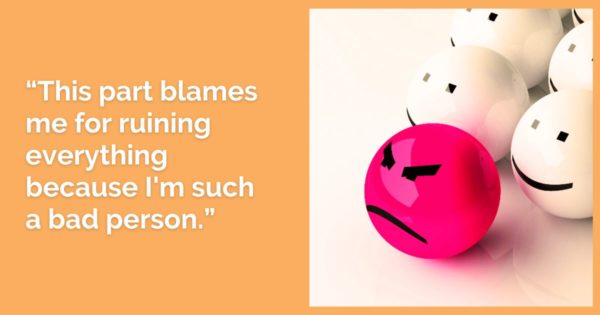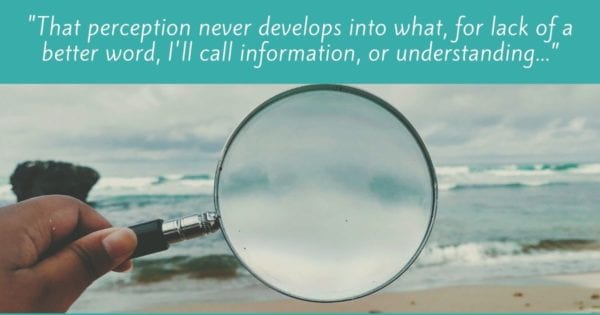“I hated it when someone reflected my words back to me.”
~~~~~~~~~~~~~~~~~~~~~~~~~~~~~~~~~~~~~~
A Reader writes: “I went to therapy on and off for over 20 years, and I hated it when someone reflected my words back to me, or summarized what I said. It seemed odd and unproductive. I didn’t know what to do and I certainly didn’t understand why they kept repeating my words or meaning, until I came in contact with Focusing 2-3 years ago. Now I know what to do and I love it.
“But when I reflect the words of non-Focusing friends who have a need to talk about a problem or emotions, I can tell it is not the least bit helpful or appreciated. I find that they don’t stop complaining — and don’t seem to go deeper. Even slipping in a few surreptitious Focusing suggestions — maybe check inside, perhaps sense for what is needed, what is the worst of this… doesn’t help.”
Dear Reader,
That’s a striking story about being in therapy, and hating it when you heard your own words back. To me that tells a tale of a therapist who didn’t know how to show you what reflecting was for. Reflecting is widely taught as a counseling skill, but not always with the awareness that it has specific purposes, and is not to be done unless those purposes are being served.
Purpose Number One is to stay in contact, to give the client a sense that one is understanding him or her, without giving an interpretation or an opinion. A reflection with this purpose is offered infrequently, and gives a kind of broad summary of what the client has been saying.
“So in all of those things that happened, there was a sense that you didn’t have much power, you were at the mercy of events.”
Purpose Number Two for reflection in therapy is reserved for those moments when the client is in contact with something presently felt, something fresh and real and hard to describe. At those moments, a reflection that is almost exactly that the person said can be very helpful – and especially so if the first time we offer it, we give the person a bit of help to understand what to do with it. It doesn’t need a lot – just adding “maybe check if that’s right…” can be enough.
“They don’t stop complaining…”
So what about reflecting with friends in social situations? You’ve tried it, and you’ve observed no positive impact on the person… “not the least bit helpful or appreciated.”
But here is my question to you – and it is a big one. Does that person actually want to be helped? Yes, they are complaining… but it is a notorious error to think that a person who is complaining is asking for help. Usually they are not!
If you think that a complaining person is asking for help, you are likely to give them some advice… and everyone knows how well that usually goes over! Offering reflection instead of advice with the intention of helping is only one step more subtle, but no more likely to be effective.
I would suggest a different purpose for saying back the words of a person who is complaining. This one has been a life saver for me. Back in the day, following in my mother’s footsteps, my first impulse when hearing a complaint was always to offer advice. This did not win me friends. When I learned about reflecting, I realized I had something else I could do… not in order to help the other person, but in order to have something to say that wasn’t advice. Reflecting is not-advice. It is also not judgmental and not my own opinion.
Offer reflecting to a friend not for them, but for yourself – so you can stay in a neutral, friendly place as you listen. It doesn’t have to be their exact words. It can be a compassionate summary, like: “That sounds hard.” Or “You’ve gone through a lot with this, haven’t you?”
If you notice you’re getting tired of hearing the complaints, here’s an idea: to ask kindly, “Have you decided yet what you’re going to do about that?” Again, it may not help them much – but it can help you get clear about what is theirs and what is yours.






